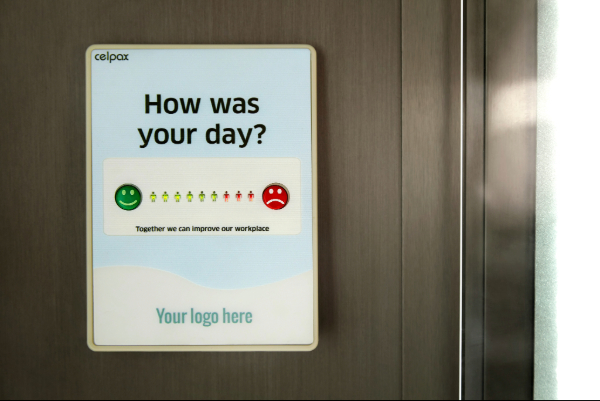Summary
The article highlights the extreme inconsistency of HR job titles, particularly the "HR Business Partner (HRBP)," which can cover roles ranging from transactional HR Advisor to strategic HR leader, resulting in a wide UK salary spectrum of £35,000 to £120,000.
You’ll learn why this confusion exists (e.g., title inflation, inconsistent adoption of the Ulrich model) and a clear framework for correcting it by defining a role’s strategic influence and core responsibilities before assigning a title to ensure effective hiring and proper salary benchmarking.
Let’s talk about job titles in HR…
After more than two decades in this profession, I’m still baffled by how inconsistent HR job titles are. It’s something you only truly appreciate when you’re recruiting, benchmarking, or talking to candidates across different organisations - and no title causes more confusion than HR Business Partner (HRBP).
At The HR Recruiters, we’ve spoken to hundreds of HR professionals over the years, and the “HRBP” label consistently produces the widest range of job profiles, responsibilities, and salaries.
So, let’s break down why this happens, what it means for both employers and candidates, and how to fix it.
What does an HR Business Partner actually do?
In theory, an HR Business Partner is a strategic people professional who partners with business leaders to deliver HR strategy - aligning people initiatives with commercial goals.
In practice, the term has been stretched so far that it now covers a huge spectrum of roles.
We’ve recently spoken to HRBP candidates whose day-to-day responsibilities include:
- Handling employee relations cases and issuing contracts (very operational)
- Supporting managers with performance management and employee recruitment
- Leading people strategy and workforce planning across multiple business units
- Managing HR teams and advising boards on transformation and culture change
Those are wildly different levels of responsibility.
At one end, you have transactional HR Advisors working closely with line managers; at the other, strategic HR leaders influencing boardroom decisions. Yet both often share the same title: HR Business Partner.
The HR Business Partner salary range in the UK
This variation is reflected in pay.
Across the HRBP candidates we’ve spoken to recently, salaries ranged from £35,000 to £120,000 - all under the same title.
That’s not just confusing for candidates - it’s a nightmare for employers trying to budget, benchmark, and attract the right talent.
If you post an advert for an HR Business Partner at £50K, but your job description looks like a Head of HR role, you’ll likely struggle to fill it. On the flip side, if your “HRBP” is really an HR Advisor role, you might overpay or attract candidates with expectations far beyond the role’s scope.
Why HR job titles have become so blurred
There are a few key reasons HR job titles - and especially HRBP - have lost consistency:
- Legacy structures.
Many organisations adopted the Ulrich HR model (with HRBPs, CoEs, and shared services) years ago, but not all implemented it in the same way. Some HRBPs remained largely operational, while others became truly strategic partners. - Title inflation.
In smaller businesses, “HR Business Partner” sounds more progressive or senior than “HR Advisor” - so it’s used even when the role isn’t strategic. - Evolving HR functions.
As HR teams modernise, titles like “People Partner” or “People Business Partner” have emerged, further blurring the lines between HR Advisor, HRBP, and Head of HR. - Attraction and perception.
Job titles influence candidate interest. A “Business Partner” title can attract more applicants than “Advisor” - even if the responsibilities are identical.
Why this matters for hiring
When the job title doesn’t accurately reflect the role, it causes all kinds of hiring headaches.
Employers often tell us:
“We’re really struggling to find HR Business Partners.”
But when we review the role, what they actually need is something else entirely:
- An HR Advisor with broader stakeholder exposure
- A People Partner with both strategic and operational remit
- A Head of HR or People Lead driving culture and change
When there’s a mismatch between job title and job content, three things happen:
- Time to hire increases. You’re fishing in the wrong talent pool.
- Candidate expectations misalign. Applicants assume the role is more or less senior than it really is.
- Recruitment costs rise. More interviews, more dropouts, and more frustration for everyone.
How to fix it: clarity first, title second
The key to solving HR job title confusion is simple: start with clarity.
Before you post a vacancy or agree a salary band, ask:
- What level of strategic influence does this role have?
- Who does it report to, and who does it support?
- Is it focused on delivery (day-to-day HR) or design (building strategy)?
- How much autonomy does the role have to make decisions?
Once you’ve defined those elements, the correct title usually becomes clear.
If it’s mostly operational: it’s an HR Advisor or Senior HR Advisor.
If it’s balancing operational delivery with strategic input: it’s a People Partner or HR Business Partner.
If it’s leading and shaping the people agenda: it’s a Head of HR, People Lead, or HR Director.
This isn’t about being pedantic - it’s about aligning expectations so everyone involved in the hiring process is clear on what success looks like.
Is this just an HR problem?
It’s easy to think HR has a unique problem with titles - but it’s not alone.
Tech has its “Project Managers” and “Product Owners.”
Sales has its “Account Executives” and “Business Development Managers.”
Marketing has “Managers” who might run a single channel or an entire team.
But in HR, the confusion cuts deeper because we’re the ones responsible for organisational design and job architecture. If our own titles are inconsistent, it undermines the credibility of our profession.
Why it’s time for HR to lead by example
Clear job titles help everyone:
- Candidates know what they’re applying for
- Employers attract better-matched talent
- Recruiters can benchmark more effectively
- The profession gains clarity and consistency
In an age where HR is increasingly strategic - shaping culture, capability, and performance - our job titles should reflect that professionalism.
So maybe it’s time for HR to lead by example and bring structure, consistency, and transparency back into its own house.
How The HR Recruiters can help
At The HR Recruiters, we’re not just recruiters - we’re HR professionals ourselves. We’ve been in the thick of it: leading teams, managing restructures, navigating boardrooms, and building people strategies that work in the real world.
That’s why we’re so passionate about helping businesses:
- Define clear, accurate HR job profiles
- Benchmark salaries and seniority correctly
- Hire HR professionals who fit your culture, not just your job description
And if you’re an HR professional looking for your next role, we’ll help you find one that truly matches your experience, aspirations, and impact - not just your title.
Because in the end, it’s not the job title that matters. It’s the value you bring.
Final thought
The “HR Business Partner” debate highlights something bigger: the evolution of HR itself.
As our profession continues to mature, we owe it to ourselves - and the organisations we support - to get clearer about what we mean by each role.
When your title, your responsibilities, and your business needs are aligned, that’s when HR really adds value.
HR Recruitment Services
Looking to hire or move within HR?
Get in touch with The HR Recruiters — we help businesses and HR professionals connect with roles that fit perfectly in skill, salary, and culture.
Connect with us on LinkedIn or book a chat to start the conversation.















